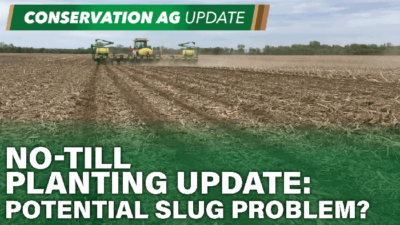About a month ago I was wrapping up another week of work when my wife shouted up the stairs at me, “Hey, they’re doing a documentary about no-till on TV!”
So I came downstairs to check it out, not sure what to expect. Sure enough, some of the most recognizable and influential faces of no-till in the Great Plains region — Dakota Lakes Research Farm manager Dwayne Beck and veteran Kansas no-tillers Keith Thompson and Justin Knopf — were all on camera discussing the practice as part of a 2-hour documentary on the Discovery Channel called, “Rancher, Farmer, Fisherman.”
Based on a book by best-selling author Miriam Horn, the documentary premiered at the Sundance Film Festival this year.
We’ve already seen no-till make a splash in The New York Times, The Washington Post, The Wall Street Journal and other prominent media sources, and that’s certainly something to celebrate. But this documentary seemed to pull at my heart strings a little more.
Why? It’s hard for me to put a finger on it. In the last several years, I’ve had many no-tillers — especially the pioneers from the 1960s and 70s — tell me about the sense of isolation they felt as they embarked on their journey to adopting no-till.
Not only did most neighbors not believe in them, there was little or no technical support available to help them like there is today through Extension, the NRCS, Soil and Water Conservation Districts and other organizations. For many years, it was just their will to succeed that kept the movement alive.
No-till was, and still is a movement, and I imagine some of its leaders, after many decades of preaching and instructing about no-till’s benefits, are feeling some level of satisfaction from this documentary.
On a personal level, seeing the very things I’ve witnessed and written about the last 7 years during my travels to farms displayed on a major cable network, narrated by award-winning news icon Tom Brokaw, helped convince me even further that no-till has arrived and is more viable than ever as a farming practice.
I think no-tillers everywhere should be proud of what they’ve accomplished, as they continue to change the face of farming for the better.







Post a comment
Report Abusive Comment